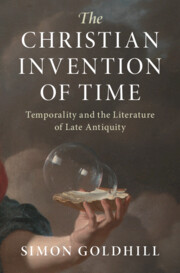Introduction
Published online by Cambridge University Press: 13 January 2022
Summary
In my view, there is no artwork that captures the modern sense of time as profoundly as Christian Marklay’s installation, The Clock – first produced in 2010, and, since its opening, repeatedly staged in galleries around the world, to amazed reviews. It is, as Zadie Smith declared, ‘sublime’. The Clock is made up of around 12,000 short film and television clips that run on a 24-hour loop. In every single clip, you can see a watch or clock which shows the exact time at which you are watching The Clock. The synchronization is both funny and uncanny. If you start watching at 2.10, each of the short extracts contains a timepiece showing 2.10 – often several clips for the same minute. At 2.11, it is all 2.11 – and so on for twenty-four hours. At 6.00, a string of hatted men suggests a cocktail; tea is taken repeatedly between 4.00 and 4.30, tea-time; high noon looms and awaits its gunshots. The joy or frustration of interruption is replayed again and again with an extraordinary fascination.
- Type
- Chapter
- Information
- The Christian Invention of TimeTemporality and the Literature of Late Antiquity, pp. 1 - 16Publisher: Cambridge University PressPrint publication year: 2022

